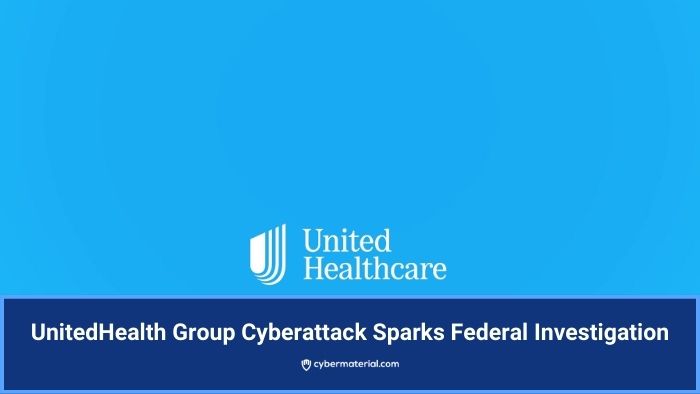March 14, 2024 – Cyber Briefing

👉 What’s trending in cybersecurity today?
Plugin Vulnerabilities, Expose Data, FakeBat Malware, Active Malvertising, PixPirate Android Banking Trojan, Evades Detection, Critical Flaw, FortiClientEMS, Google Gemini LLM Vulnerabilities, Boat Seller MarineMax, Cyberattack, Disrupts Operations, Alabama Government Websites, Denial of Service Attacks, Barrie Medical Clinics, Ransomware, Austrian Styria IT Company, CCM Health Data Breach, Individuals, UnitedHealth Group Cyberattack, Federal Investigation, EU Parliament, Landmark AI Regulations, Swedish Data Brokers, Exploit GDPR Loophole, Industrial Cybersecurity Firm Nozomi, $100M Funding, LockBit Cyberterrorist, Sentenced, Canada
Listen to the full podcast
1.ChatGPT Plugin Vulnerabilities Exposed
Salt Security reveals critical flaws in ChatGPT plugins, allowing attackers to exploit OAuth authentication, compromising user data and account control. Vulnerabilities in AskTheCode and Charts plugins demonstrate risks of zero-click exploits and account takeovers. Despite vendor patches, ongoing scrutiny reveals broader security concerns in AI-driven interactions.
Fortinet warns of a critical flaw in FortiClientEMS software, enabling attackers to execute unauthorized code via crafted requests. Tracked as CVE-2023-48788 with a CVSS rating of 9.3, the vulnerability affects multiple versions, emphasizing the urgency for immediate patching to mitigate potential risks.
3.FakeBat Malvertising Active Campaigns
FakeBat, a persistent malware family, spreads through MSIX installers packed with obfuscated PowerShell code, exploiting URL shorteners and legitimate websites for distribution. Recent campaigns display a variety of targeted brands, including OneNote, Epic Games, and Ginger, posing challenges for detection and mitigation efforts. Despite being reported to Google, FakeBat’s ability to evade security checks underscores the ongoing threat to businesses and the need for enhanced cybersecurity measures.
PixPirate threat actors deploy a new tactic to hide the malicious app’s icon on compromised devices, allowing covert harvesting of sensitive data, particularly targeting Brazilian users. By concealing its operations from victims, PixPirate conducts fraudulent activities undetected, including unauthorized fund transfers and theft of banking credentials and credit card information, posing significant risks to victims’ financial security. The malware’s evolving techniques highlight the ongoing challenge of defending against sophisticated Android banking trojans in the cybersecurity landscape.
HiddenLayer reveals vulnerabilities in Google’s Gemini large language model (LLM), posing risks of leaking system prompts, generating harmful content, and executing indirect injection attacks. These issues affect consumers using Gemini Advanced with Google Workspace and companies leveraging the LLM API, emphasizing the importance of robust security measures to safeguard against potential threats. The findings underscore the need for continuous testing and improvement of models to defend against adversarial behaviors and ensure user safety.
Billion-dollar boat seller MarineMax discloses a cyberattack in regulatory filings, disrupting operations since Sunday. Despite ongoing operations, cybersecurity experts are engaged to investigate, while law enforcement is notified, though the impact on operations remains uncertain. MarineMax emphasizes no sensitive data was stored in the impacted environment but remains vigilant amidst recent cyberattacks in the boating industry.
Alabama state government websites experience a “denial of service” attack, prompting active mitigation efforts by the Office of Information Technology (OIT) to address slowdowns. Despite assurances from Governor Kay Ivey’s office of no breach or unauthorized access to state computers and information, the attack’s exact impact on state agencies remains under investigation.
A ransomware attack strikes a network of Barrie medical clinics, prompting investigations and cooperation with law enforcement. Despite disruptions, clinic services remain operational, with efforts underway to restore phone services and ensure patient data integrity. The incident highlights the growing prevalence of cyber threats targeting businesses, emphasizing the importance of robust cybersecurity measures and vigilance against ransomware attacks.
Over the weekend, an IT company in Styria, Austria, experienced a cyberattack jeopardizing customer data from “Klagenfurt Wohnen.” Valentin Unterkircher of the Klagenfurt city communications department confirmed the breach, stating data extraction is under analysis.
CCM Health in Montevideo, MN, alerts 29,182 individuals about a recent network security incident compromising personal and health information. Unauthorized access from April 3 to April 10, 2023, led to the removal of files containing sensitive data, including Social Security numbers and medical records. Affected individuals receive free credit monitoring services following the breach notification.
Federal regulators launch a full investigation into a cyberattack on UnitedHealth Group’s Change Healthcare unit amid concerns over a potential data breach. The attack, impacting healthcare entities nationwide, prompts the Department of Health and Human Services to take action.
In a significant milestone, the European Parliament greenlights the Artificial Intelligence Act, marking the world’s first comprehensive regulation on AI. With overwhelming support, the legislation aims to mitigate risks, foster innovation, combat discrimination, and ensure transparency in AI development and deployment.
A loophole in Swedish law enables data brokers to sidestep GDPR, selling personal information without restrictions. MrKoll, one of Sweden’s largest data brokers, leverages a “media license” to evade EU privacy regulations, prompting concerns about data misuse and privacy violations. The lax legislation raises alarm as it facilitates the wholesale trade of sensitive information, undermining GDPR’s core principles of consent and data protection.
Nozomi Networks secures $100 million in Series E funding, with investments from industry giants like Mitsubishi Electric and Schneider Electric, bolstering its position as a leader in OT and IoT security. The funding will fuel product development and global expansion efforts, underscoring the growing demand for OEM-agnostic security solutions amidst escalating cyber threats to critical infrastructure worldwide.
Mikhail Vasiliev, an affiliate of LockBit ransomware, has received a nearly four-year prison sentence in Canada and agreed to be extradited to the United States. Justice Michelle Fuerst termed Vasiliev a “cyber-terrorist,” emphasizing the severity of his calculated actions.
Copyright © 2024 CyberMaterial. All Rights Reserved.
Get Help
July 31, 2025 – Cyber Briefing
July 30, 2025 – Cyber Briefing
July 29, 2025 – Cyber Briefing
July 28, 2025 – Cyber Briefing
July 25, 2025 – Cyber Briefing











